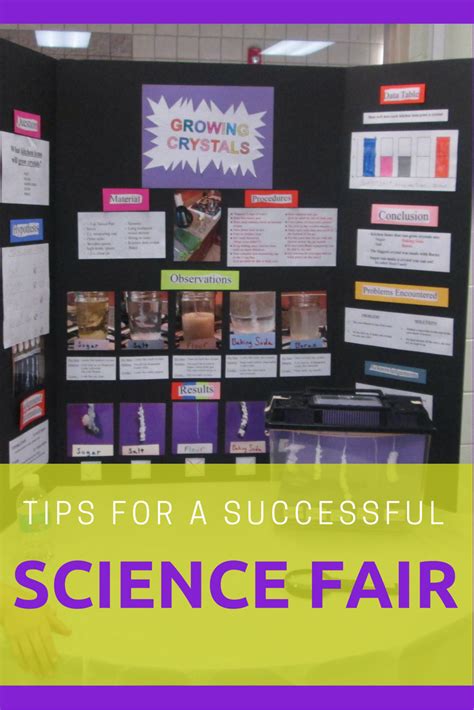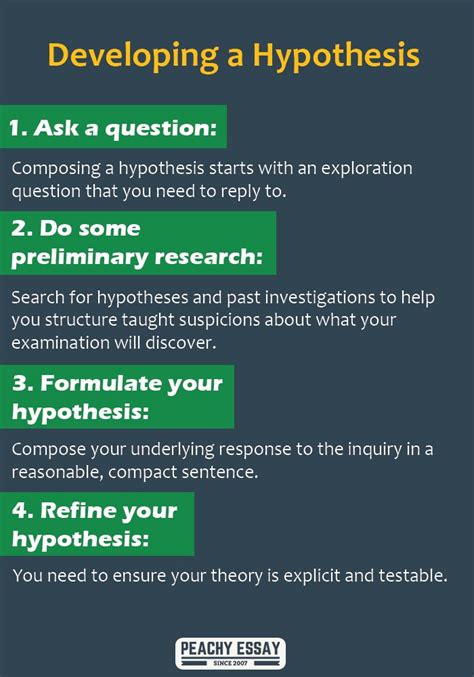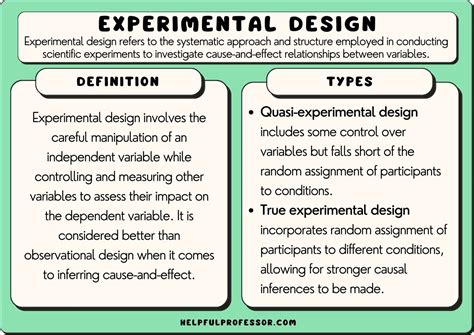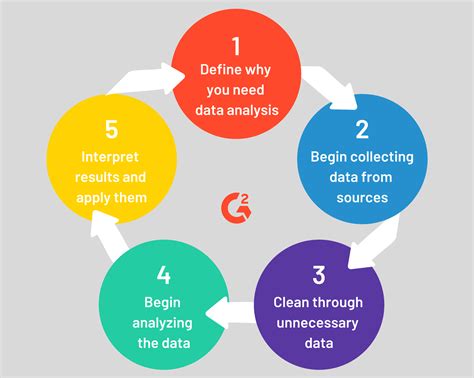Breaking News


Popular News


Learn how to plan a successful science fair from choosing the right topic to creating a winning presentation in this ultimate guide.Are you a student or teacher looking to make the most out of your school’s science fair? Planning a successful science fair project can be a daunting task, but with the right guidance, it can also be an incredibly rewarding and educational experience. In this ultimate guide, we will walk you through every step of the process, from choosing the right topic to creating a winning presentation. By the end of this post, you will have the knowledge and tools necessary to plan and execute an impressive science fair project that will wow the judges and leave a lasting impression. So grab your lab coat and goggles, and let’s dive into the world of science fair success.
Contents

Choosing the right topic is a crucial first step in planning a successful science fair project. It’s important to select a topic that you are passionate about and that aligns with your interests and skills. Consider what you are curious about and what questions you have about the world around you. Brainstorm different ideas and consider the resources and time you have available to dedicate to your project.
Once you have a few potential topics in mind, create a list of pros and cons for each one. Think about the feasibility of each topic and whether you will be able to conduct experiments and research on it. Consider the potential impact and significance of each topic, and how it relates to current scientific research and discoveries. Choose a topic that is not only interesting to you, but also has the potential to make a meaningful contribution to the scientific community.
After narrowing down your options, it’s important to research each potential topic thoroughly. Look for relevant scientific literature, articles, and studies that can help you better understand the background and context of your chosen topic. This will help you develop a deeper understanding of the subject matter and identify gaps in existing knowledge that you can address in your project.
Ultimately, the right topic for your science fair project will be one that excites you, challenges you, and allows you to make a meaningful contribution to the field of science. Take your time to carefully consider your options and choose a topic that sparks your curiosity and passion.

Before embarking on any scientific experiment, it is essential to develop a hypothesis to guide your research. A hypothesis is a statement that can be tested through experimentation or observation, and it serves as the foundation of the scientific method. When developing a hypothesis, it’s important to consider the question you are trying to answer and formulate a possible explanation or prediction based on existing knowledge or theory.
One approach to developing a hypothesis is to conduct background research on the topic of interest. This can help you gain a better understanding of the subject and identify potential relationships or patterns that may be worth investigating. Once you have a thorough understanding of the topic, you can then formulate a clear and testable hypothesis that will guide your experiment.
It’s important to note that a hypothesis should be specific, measurable, and falsifiable. This means that it should be clear and concise, and it should be possible to test and potentially disprove the hypothesis through experimentation. Additionally, a good hypothesis should be based on sound reasoning and evidence, rather than personal opinion or bias.
Finally, once you have developed a hypothesis, you can use it to design an experiment that will test the validity of your prediction. This experiment will involve collecting and analyzing data to determine whether your hypothesis is supported or refuted, ultimately leading to new insights and knowledge in the field of study.

When designing the experiment for a science fair project, it’s important to start by clearly defining the purpose of the experiment. This means identifying the research question or problem you are trying to solve, and brainstorming different variables that could affect the outcome.
Next, you will need to develop a hypothesis that you can test through your experiment. This involves making a prediction about the outcome of your experiment based on your research and background knowledge. Your hypothesis should be specific and testable, and should address the research question you identified.
Once you have a clear research question and hypothesis, it’s time to plan the details of your experiment. This includes deciding on the materials and procedures you will use, as well as the variables you will manipulate and measure. It’s important to think carefully about how you will control other factors that could potentially influence the results of your experiment.
Finally, you will need to create a detailed experimental design that outlines the step-by-step procedure you will follow in your experiment. This may involve creating a data table to record your observations, and thinking about how you will analyze and interpret the data you collect. Your experimental design should be clear and comprehensive, and should allow others to replicate your experiment if they wanted to.

When it comes to the science fair project, collecting and analyzing data is a crucial step in the process. It is important to gather accurate and relevant information to support your hypothesis and draw meaningful conclusions. The first step in this process is to decide on the type of data that needs to be collected. This could include qualitative or quantitative data, depending on the nature of the experiment.
Once the data has been collected, the next step is to organize and analyze it effectively. This may involve using graphs, charts, or tables to present the findings in a clear and visual manner. It is important to pay attention to detail and ensure that the data is accurately represented.
In addition, it is important to draw conclusions based on the data collected and analyzed. This may involve identifying patterns or trends, and interpreting the results in the context of the original hypothesis. Drawing meaningful conclusions is an important part of the scientific process and can help to support or refute your initial hypothesis.
Overall, collecting and analyzing data is a critical step in planning a successful science fair project. By paying attention to detail, organizing the data effectively, and drawing meaningful conclusions, you can present a well-supported and insightful project that will impress the judges and peers alike.

When it comes to the science fair, the presentation is your chance to showcase the hard work you’ve put into your project. A winning presentation is not only visually appealing, but also effectively communicates your findings and conclusions.
First and foremost, choosing the right topic is essential in creating a winning presentation. Your topic should be interesting, relevant, and have a clear hypothesis that you can test through an experiment.
Next, it’s important to develop a hypothesis that you can effectively test and analyze. This will form the foundation of your presentation and guide your experiment and data collection.
After designing and conducting your experiment, it’s time to collect and analyze data to support your findings. This data will be crucial in creating visual aids and gra

What are the key steps in planning a science fair?
The key steps in planning a science fair include choosing a topic, conducting research, creating a hypothesis, designing an experiment, analyzing data, and presenting the findings.
How can students choose a topic for their science fair project?
Students can choose a topic for their science fair project by identifying their interests and brainstorming ideas related to science and the world around them. They can also seek inspiration from current events, nature, or their own experiences.
What are some tips for conducting effective research for a science fair project?
Some tips for conducting effective research for a science fair project include using reliable sources, taking thorough notes, and conducting experiments or surveys to gather data. It’s also important to cite sources properly and analyze the information critically.
How can students ensure that their science fair project is well-designed?
Students can ensure that their science fair project is well-designed by clearly defining their question or problem, developing a testable hypothesis, identifying variables, and creating a detailed plan for their experiment. They should also consider potential challenges and how to address them.
What are some effective ways for students to analyze and interpret their data?
Some effective ways for students to analyze and interpret their data include organizing it visually through charts or graphs, looking for patterns or trends, and drawing conclusions based on the evidence. They can also consider the limitations of their data and propose further research.
How should students prepare for presenting their science fair project?
Students should prepare for presenting their science fair project by practicing their presentation, creating visual aids or demonstrations, and anticipating questions from judges or attendees. They should also be enthusiastic and confident in sharing their findings.
What are the benefits of participating in a science fair?
Participating in a science fair can help students develop important skills such as critical thinking, problem-solving, and communication. It also allows them to explore their interests in science and share their discoveries with others. Additionally, it can lead to opportunities for further study or recognition.